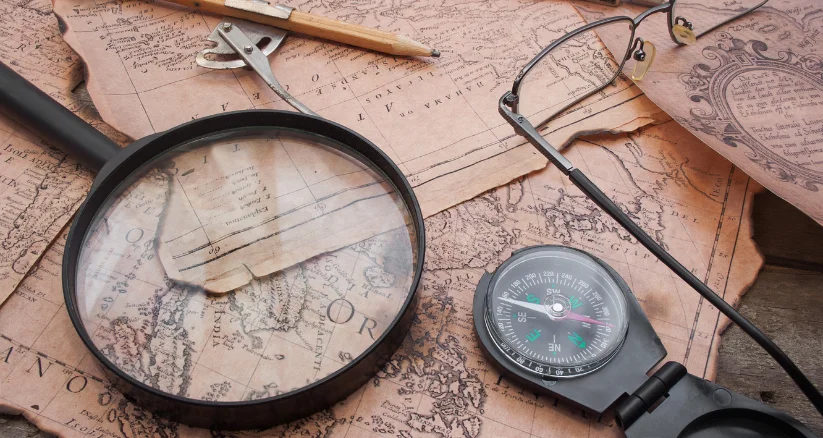GUEST POST
How to Answer the GCSE History Edexcel Historical Environment Question with Confidence

The historical environment question in the Edexcel GCSE History Paper 1 can be a stumbling block for many students, especially when it comes to questions like:
Study Source A. How could you follow up Source A to find out more about how the conditions in Whitechapel affected policing? In your answer, you must give the question you would ask and the type of source you could use. Complete the table below. (4 marks)
Many students are uncertain about how to approach this question effectively, but with a clear understanding of its purpose and structure — and with the support of a GCSE History tutor through online tuition — you can turn this question into a straightforward four-mark gain.
Understanding the Purpose of the Historical Environment Question
The historical environment question is designed to test your ability to use historical sources to enquire further into a specific issue. It is always worth four marks and typically follows a pattern that asks you to examine a specific detail in a source, think of a related question, suggest a source you could use to find out more, and explain how that source would help you.
This question is always structured with a table that prompts you to provide four key components:
- Detail in Source A that I would follow up
- Question I would ask
- What type of source I could use
- How this might help answer my question
Step 1: Identify a Follow-Up Detail from Source A
What should you look for in Source A?
Your first task is to read Source A carefully and identify a specific detail that you could investigate further. Many students make the mistake of picking something too general. Instead, you should focus on something precise and factual from the source.
For example, if Source A mentions that “the narrow alleyways of Whitechapel made patrolling difficult,” your detail to follow up would be “narrow alleyways making patrolling difficult”.
Tip: Always quote directly from the source or paraphrase a clear point. Avoid vague statements like “conditions were bad,” and aim for specific features or issues highlighted in the source. If you struggle to spot useful details, practising with past papers alongside a GCSE History tutor can help build confidence.
Step 2: Formulate a Clear Question

How do you craft a focused enquiry question?
Once you have your detail, you need to create a question that probes deeper into the topic. Your question should be linked closely to the detail you have chosen.
Continuing the previous example, your question might be: “How did the layout of Whitechapel’s alleyways impact police patrol routes in the 1880s?”
Tip: Your question should avoid yes/no answers and encourage exploration. Think about causes, effects, and significance.
Step 3: Choose an Appropriate Source

Which sources work best?
Next, you need to identify a historical source type that would realistically help you answer your question. You must be specific about the type of source rather than general.
In our example, a suitable source might be: “Maps of Whitechapel from the 1880s” or “Police reports detailing patrol difficulties in Whitechapel during the 1880s”.
Tip: Be realistic, use sources a historian could genuinely access, like reports, maps, newspaper articles, census data, or court records from the time. Working through examples with online tuition can make this step easier, as a GCSE History tutor can show you the types of sources examiners expect.
Step 4: Explain How the Source Helps
Why is this source useful?
Finally, you must explain how the source would answer your question. This explanation should demonstrate an understanding of the usefulness of the chosen source.
For example: “The maps would show the layout of alleyways and streets, helping to understand how physical geography affected police patrols”.
Tip: Do not just say “it would give me more information.” Always explain how the information from the source connects back to your question.
Common Mistakes to Avoid
- Being too vague: Always be specific about the detail, question, source, and explanation.
- Repeating the same point: Each section of the table must add new information.
- Choosing unrealistic sources: Avoid saying “I would interview someone” or “I would look at a website” for nineteenth-century topics.
Example Full Answer
Detail in Source A that I would follow up: The source says that “the narrow alleyways made patrolling difficult.”
Question I would ask: How did the layout of Whitechapel’s alleyways impact police patrol routes in the 1880s?
What type of source I could use: Maps of Whitechapel from the 1880s.
How this might help answer my question: The maps would show the alleyway layout, helping to explain how these physical conditions made patrolling challenging for the police.
Conclusion: Practice Makes Perfect
The historical environment question in the Edexcel GCSE History paper may look daunting, but by practising a methodical approach, you can easily secure four marks. Always be precise, link each part of your answer logically, and ensure your sources are historically appropriate.
With practice — and the guidance of a GCSE History tutor through flexible online tuition — you can turn this tricky question into one of the easiest marks on the paper, building skills that will boost your confidence across the whole exam.
Students

Adam
Tutor
Super Tutor ◆ Head of Humanities ◆ Senior AQA Examiner ◆ 1800+ Lessons
Looking for a tutor?
Sherpa has hundreds of qualified and experienced UK tutors who are ready to help you achieve your goals. Search through our tutors and arrange a free 20 minute introduction through our industry-leading online classroom.
Find a TutorSimilar Articles
Traditional Learning Vs. Flipped Learning
Discover how shifting from traditional teaching to a flipped classroom boosts engagement, strengthens memory, and supports higher-order thinking.

Leila F
5th November



